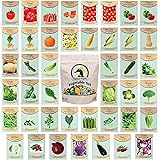Maple99 Raised Garden Bed with Legs 72x23x30 - Natural Cedar Wood Elevated Planter Box, Veggies, Herbs - 300lb Capacity - Natural
$129.99 (as of 15:28 GMT -05:00 - More infoProduct prices and availability are accurate as of the date/time indicated and are subject to change. Any price and availability information displayed on [relevant Amazon Site(s), as applicable] at the time of purchase will apply to the purchase of this product.)Tigerden Raised Garden Bed Kit for Outdoor, PP Material Planter Boxes 3.0x1.8x1.0ft, Large Garden Box Flower Bed with Easy Assembly, Gardening Containers for Vegetables, Flowers, Herbs, Black
$24.99 (as of 14:42 GMT -05:00 - More infoProduct prices and availability are accurate as of the date/time indicated and are subject to change. Any price and availability information displayed on [relevant Amazon Site(s), as applicable] at the time of purchase will apply to the purchase of this product.)Composting is a natural process that involves the decomposition of organic matter, such as food scraps and yard waste. It’s an eco-friendly way to reduce your household waste while creating nutrient-rich soil for your garden. If you’re new to composting, starting at home can seem daunting, but it doesn’t have to be! Here are some tips on how to get started:
What is Composting and Why Should You Start?
Composting is the process of breaking down organic material into a rich, nutritious soil amendment. By doing so, you not only reduce the amount of waste going to landfills but also create a valuable resource for your garden. Composting helps improve soil health by increasing its ability to retain moisture, improving drainage, and reducing erosion. Additionally, it provides plants with essential nutrients like nitrogen, potassium, and phosphorus.
The Basics of Starting Your Own Compost Pile
To start composting at home, you need three things: brown materials (such as leaves or shredded paper), green materials (like fruit and vegetable scraps), and water. Mix these ingredients together in a pile or bin, and let nature take its course. The key to successful composting is maintaining the right balance between carbon and nitrogen sources, as well as keeping the pile aerated and moist.
Tips for Maintaining a Healthy Compost Pile
To ensure your compost pile stays healthy, turn it regularly to aerate the mixture and distribute moisture evenly throughout. A good rule of thumb is to turn the pile every two weeks. You should also keep track of the temperature inside the pile; ideally, it should reach around 130°F to kill off pathogens and speed up the decomposing process. Too hot or too cold temperatures could slow down the process or attract unwanted critters.
Common Mistakes to Avoid When Composting
One common mistake people make when composting is adding meat or dairy products to their piles. These items tend to attract rodents and flies, which can contaminate the entire batch. Another mistake is using chemicals or synthetic fertilizers, as they can disrupt the delicate balance of microorganisms needed for effective composting.
How to Use Your Homemade Compost in the Garden
Once your compost has fully broken down, you can use it to enrich your garden soil. Simply spread a layer of compost over the top of your flower beds or vegetable patches before planting. You can also mix it into the soil prior to planting to give your plants a boost of nutrients.
Frequently Asked Questions About Composting at Home
Is composting smelly? Yes, there may be some odor associated with composting, especially if you add high-nitrogen materials like fresh grass clippings or manure. However, proper management techniques like turning the pile regularly and monitoring moisture levels can help minimize any unpleasant smells.
Do I need special equipment to compost? No, you don’t necessarily need expensive equipment to start composting at home. A simple pile or bin made from chicken wire or pallets works just fine. That being said, there are many different types of composters available on the market today, including tumblers and bokashi buckets, that can make the process easier and more efficient.
Can I compost during winter months? Absolutely! While colder temperatures may slow down the decomposition process, you can still continue to add materials to your pile year-round. In fact, fall is an ideal time to start a new compost pile, as leaves and other fallen debris provide plenty of browns for your mix.
Related Content
- Apply now for free 2022 Master Composter Recycler training | Clark County
- COMPOST Act addresses need for grants to expand access to food waste composting
- Three recipes for those who truly appreciate a salad ‘with lots of stuff in it’ – The Globe and Mail
- Join thousands of people in Norfolk composting at home
- Think twice before discarding leaves this fall | Local News | newspressnow.com













































